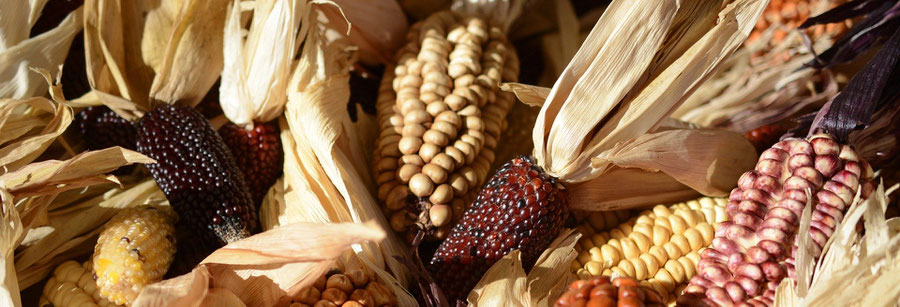page 2 - Ziraat: a turning point in agriculture
1. The owner of the farm is God
Sufis call God „the One“. It is a being that embraces everything, at the same time male and female, transcendent and immanent. One could also call it “life” or “nature”
In the new culture the dichotomy between man and nature is bridged. The individual farmer has no longer the absolute control and power over his farm. The consciousness will become dominant, that the farmer got his farm as “bondsman” from the “One” or the “Whole” and by tuning in to this whole he works his farm. The “Whole” includes the community of involved human beings, the nature kingdoms, the environment as formed by the elements, the seen and unseen beings. We would call this spiritual social ecology. The rule of individual ownership, which is the basis of modern capitalism, will be modified. As bondsman one has certain obligations towards the sovereign and the giving and taking is organized. Murshid introduces the word “interdependency” for the acknowledgment of rights and obligations. It describes a new relationship in complete freedom between the individual and the One.
2. Those who work on the farm, follow the experienced farmer
In the present modern agriculture experience has lost its importance. New methods are introduced without any idea about the consequences in the long run. In Ziraat Agriculture a renewed tuning in to the spiritual hierarchy is the guarantee that any single step in the process of working the fields is in harmony with the “Whole”. The farmer is the one that by tuning in to the great master that brought the Message and to the master that incorporates the Message in the present moment, guides the work on the fields in accordance to the “One”. Sound ecological food production depends on orientation to the masters of humanity.
3. The farmer's religion is his work
The old dichotomy between religion and daily work is overcome. The division of work in the week and religion on Sunday, or work through the year and holidays one week on the Bahamas as typical for the western culture loses its validity. In the present culture religion takes us away from the daily work and vice versa material life sucks away the energy of religion. In Ziraat Agriculture the workers are in tune with the sacred, doing their work. Growing food becomes a holy activity.
4. The achievement of the farmer is a successful harvest
This principle of Ziraat Agriculture may sound as a matter of course. The main purpose of agriculture is to bring food security to mankind. Unfortunately this goal is violated worldwide. The reasons for the growing hunger on our planet are manmade. Modern agriculture is more and more directed towards production of raw material for industrial purposes including energy production. Part of the Ziraat papers as rediscovered in the seventies was the text from a Babylonian clay tablet from 2100 BC. Here mankind is asked to stop searching for the divine outside of the world that is given to us: “Finish thy weeping..... The plant which frees from death ….thou shall not take ....”. Murshid renewes this age old commandment. In the words of the tablet: “Go, work your land. Raise food for eating. Hu-manity, thou art to know abundance.” The overcoming of hunger is the paradigm of the times to come.

5. Farmer and farm will be one
The psychological and spiritual attitude of the worker on the farm becomes an essential part of the process of growing food.
Murshid often cites the sentence of Jesus Christ “in You we live and move and have our being“. In the moment that the worker on the field becomes conscious of his/her being part of a natural unity a revolution in agriculture takes place. Today the farmer tries to be as little part of the cycles of plant growth and harvest as possible. In the agriculture of the future the interplay on the soul level between the mineral, vegetable, animal and human nature kingdoms will be discovered. The farmer will allow the natural processes on the field to reflect in his inner life. This will be not just a blessing for the worker but also for the earth, plants and animals. The reflection of nature in the human being and the feelings and dreams connected with farm work will be central in Ziraat Agriculture. “Farmer, farm and farming” will be a living example of the Sufi trinity “lover, beloved and love”.
6. Plant growth obeys to the rules of the 5 elements
Plants answer willingly to the impulses of the elements. They develop roots answering to the call of the earth element, leaves together with the water element, flowers through the impulse of the fire element, fruits because of the air, seeds with the influence of ether. Only those farmers that become conscious of these impulses can in the long run be successful. To follow the rules of the elements in his/her work changes the attitude of the worker. Only through being in tune with the elements the worker can successfully grow plants, because only then he/she can really understand nature. To tune in to the elements means to tune ones heart. Murshid describes in key terms the specific condition of the soul according to each element: earth needs our humbleness, water our willingness, fire needs us whole hearted, air wants our gladness, ether complete surrender.
